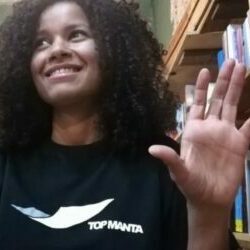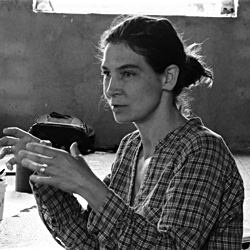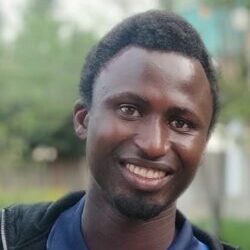Diversity, power and participation in migrant solidarity work
How do we bring more equity into our movements to acknowledge our vastly different starting points? How do we decolonize our thinking, actions and organising? How do we create spaces in political and social participation to ask ‘whose reality counts?’
In the field of racial justice and migrant solidarity work we find ourselves working within deep, historic and intersecting social constructions such as race, gender, class, culture, sexual orientation, legal statuses. Systems of oppression, particularly in this course we focus on colonial and racial oppression, are underpinned by conscious and unconscious perception of ‘other’ dependent on these collectively created social constructions.
In grassroots migrant solidarity work, we aim to co-create intercultural spaces and go beyond the ‘us and them’ of traditional NGO and state response, but despite our intentions we sometimes recreate old power dynamics, unequal forms of participation, conflict and the bitter taste of repeating the same old relationships over again.
This course proposes to start a few steps back looking to the forming of these social constructions. The course guides us into learning to pay attention, identify, and reflect upon the building of social constructions, to then reflect and imagine the creation of renewed forms of understanding each other. Changing the relations among others, could influence the constructions of “you” and “I”. In the words of Patricia Shaw “I cannot go on being the same ‘me’ without continuing to relate to ‘you’ in a certain way, and if that way shifts we are both a little different” (Shaw, 2002).
This course is for people who have migrated, for people who have connections to migration in their own history and for people working in social justice and migrant solidarity work. People campaigning and/or working in policy change. This training is hosted as part of the Ulex South Project
Key elements:
Understanding power and privilege, our own and that of others. We will explore the co-evolving dynamics of colonialism/decolonialism. Increase our awareness of the constructions of “views of the world” and cultural relativism. Learn theory and practical tools from the field of race and restorative justice.
Methodologies
This course is a construction site! A place for exploration and practice. A space to share, question, destroy, prototype, discuss together and get to the heart of the conflicts of power relations in our wounded past, to overcome and propose renewed ways of relating and working.
It is a course with an open quality, an explorative, creative space. We will invite people from La Bolina to lead sessions sharing their views and challenges in arriving and forming a life in receiving countries. We will explore the new labels that create the identities they find themselves in such as migrants, undocumented, refugees… and the identities formed in relation: community worker, migrant solidarity activist, social worker.
Methodologies: Some of the things we will do and explore:
This training is hosted as part of the Ulex South Project
Bibliography
In the solidarity economy:
(See details of our approach to radical economics here)
Contact us
to apply

Location:
Mariana Olisa is Brazilian, trained in journalism and has a postgraduate in Communication Strategies at the UAB. She is a contributor to Afroféminas and Píkara Magazine, she participated in the book “Cuando somos el enemigo – El activismo negro en España” in 2019. Since 2018 she is part of the programme “África subsahariana en un mundo multipolar”, offered by the Universitat de Barcelona in its programme Gaudir UB. In it, she teaches about Black Feminisms, Intersectionality and symbolic violence. She is also the brains behind the Afrofeminist Collective of Barcelona, a self-managed project that seeks the intellectual empowerment of black women and their community since 2017.

Location:
María worked for the Red Cross in community development, strengthening civil society, education, and food security in Latin America and Africa. Building on her studies in social psychology and international development, she studied Alternative Economics at Schumacher College, UK. This led her into work on organisational change with NGOs and grassroots movements. María specialises in complexity and participation applied to organisations: organisational structures and culture, emergent strategy, leadership amongst others. She co-founded The Eroles Project, a learning for action project and La Bolina, a systemic project looking at repopulation, inclusion and agroecology. María´s co-authored: Small is Important: Learnings from an integration and regeneration Project. Factores Clave para la Acción Reflexión Colaborativa, Enfoques y herramientas participativas en la cooperación al desarrollo, Activism and spirituality.

Location:
Ernest Gibba is a migrant living in Spain, proud to be from The Gambia. He is an environmental activist and one the first participants of the EcoVillage Design Education. He and his fellow activists formed the Kartong EcoVillage, one of the first of its kind in the Gambia. He is also one of the co-founders of Football 4 Peace (F4P) Gambia, a project looking at ways sports can bring people together. Ernest is now working on a sustainable project practising permaculture, agroecology and regeneration in El Valley, Granada and always open to work and share his experience and knowledge with the outside world especially migrants. He is a supporter of the Migrant Justice Climate Justice movement and also campaigns about the migrant farmers rights in industrial food systems.

Location:
Ruth Cross is co-founder of Eroles Project – an international learning for action centre, and, Asociación La Bolina – a visionary intercultural initiative working to regenerate land and lives through creating social integration and sustainable livelihoods for locals, migrants and refugees in El Valle, Andalucia, Spain. She is the Artistic Director of Cross Collaborations, an award winning arts for change immersive theatre company.
Ruth is an experienced arts activist, social theatre maker, researcher and educator specialising in instigating transformative and regenerative change. She can be found directing immersive performance with migrants and refugees, creating participatory arts action campaigns and coordinating cross-disciplinary projects with organisations, decision-makers, civil society and local communities.
For the last 10 years Ruth has facilitated capacity building training with activists and social movements. She is a research contributor with Schumacher Research in Action community, is a member of the international Delicate Activism community and of Social Arts network ImaginAction. As well as a collaborator with Asociación Solidaria Andaluza de Desarrollo (ASAD).

Location:
An Maeyens (she/her) is a facilitator and trainer with over two decades of experience in grassroots movements. She specialises in creative, inclusive agenda design and brings deep expertise on group culture, power dynamics, and transformative learning. Starting of in the anti-globalisation movement she has trained thousands in civil disobedience, supported international coalitions, and developed multilingual training programmes and toolkits. Her work spans movements, cultures, and countries, guided by a commitment to care, accessibility, and leaderful organising.

Location:
Ari’s activism began in 2002, at age 16, as a Bosnian refugee in Canada, where they founded and coordinated a group for LGBTIQ high school students and allies. They were a co-founder and leader at kolekTIRV in Croatia and Trans Network Balkan, involved in community organizing, advocacy, program management, team coordination, capacity building, education, media work, campaigns, events, fundraising, etc. In 2024, they joined the Supervisory Board of the Croatian Trade Union Collective of United Precarious Workers and Activists (SKUPA).
Beyond the Balkan region, Ari served as a Board member at Transgender Europe (TGEU), where they held roles as Secretary, Treasurer, and later Co-chair. They have also been a trainer with the Center for Artistic Activism and served on the Advisory Committee and since 2022 as a Community Care Facilitator at FRIDA — The Young Feminist Fund. Since 2024 they are the Operations Manager at Global Philanthropy Project.

Location:
Sergio (all pronouns) was born in Romania and migrated to Germany in the early 2010s. In the past, he was a social worker with homeless people and a social consultant for Eastern European migrants for various organisations. Trained as a filmmaker, he spent two years making a documentary about the ‘civic reawakening’ in Romania and the waves of protest it brought with it. In connection to this, Sergio is currently co-steering the development of an online open-source participative knowledge production platform on activism in Romania. Over the past nine years, Sergiu has offered his skills to various journalists, grassroots collectives and campaigns, mostly working within the labour rights, climate justice, international solidarity and anti-authoritarian movements in Germany and Romania. Nonetheless, his biggest focus since 2020 has been his work as an organiser with the anarcho-syndicalist Free Workers Union, where he focuses mostly on organising Romanian migrant workers on construction sites, in factories and in the agricultural field.

Location:
Linzy Na Nakorn is a movement director, politicised somatics practitioner, community organiser and facilitator. For the past decade she has been facilitating movement, body work and creating theatre, dance and participatory performance that advocates for and organises with communities in pursuit of housing, disability and racial justice. Her movement practice focuses on trauma-informed approaches to building resilience, capacity and joy via way of the body for personal, interpersonal and community sustainability. Linzy was a Co-Director of The Big Ride for Palestine in partnership with The Gaza Sunbirds, Native Woman Ride and Middle East Children’s Alliance; using cycling as a tool for mobilising active solidarity and in support of campaigning for the rights and self-determination of the Palestinian people. Linzy is part of a UK network of activists and artists advocating for Radical Care – supporting organisations, researchers and institutions to work towards system change in societal approaches to labour, leadership and access.

Location:
Jeroen (he/him pronouns) has been involved in grassroots social movements for more than two decades now, starting back when he was fifteen. Throughout the years the fights for “climate justice” and “migrant justice” have been consistently on top of the list of struggles that make his heart beat faster. A key transformative moment for Jeroen was reading Paulo Freire’s Pedagogy of the Oppressed. Freire’s revolutionary pedagogy gave him a language to support the creation of emancipatory learning environments, rooted in a desire for collective liberation. Jeroen has also been exploring in depth Boal’s Theatre of the Oppressed and Joanna Macy’s The Work That Reconnects among other methodologies to build his trainer’s toolkit. Inspired by the liberatory possibilities of these traditions, he started an organization with a friend, LABO vzw, based in Belgium, where he has worked as a trainer and campaigner between 2013 and 2023.

Location:
Ella brings more than 10 years’ external experience working with not for profit and community based organisations across diverse themes including: advocacy for migrant communities; local community engagement in national policy making; and structural relationships between poverty and disenfranchisement, and education and poverty. Immersed in critical theory in her early 20s she brings a holistic and questioning approach, and is passionate about systemic solutions that centre relationship and interconnection between ecology and society. A long standing member of the collective, Ella has been part of the core team since the inception of the Ulex Project. Her work bridges facilitation, developing project partnerships, governance, strategy, operations, and project and programme evaluation. She has developed and overseen more than 70 partnerships with a range of different actors across European social movements.
Ulex: Latin (argelaga Catalan, gorse English) noun:
1. A thorny-evergreen flowering shrub, with a high capacity for regeneration and resilience. Its seedpods open in contact with fire and it reshoots from charred stumps. A successionary plant that grows well under challenging conditions. It improves soil fertility through nitrogen fixing, preparing the way for renewed biodiversity.
2. A traditional choice for igniting fires. Burns hot and bright.
3. A networked project adding nutrition and fertility to European social movements through training and capacity building. It kindles the realisation of social justice, ecological intelligence, and cognitive vitality.